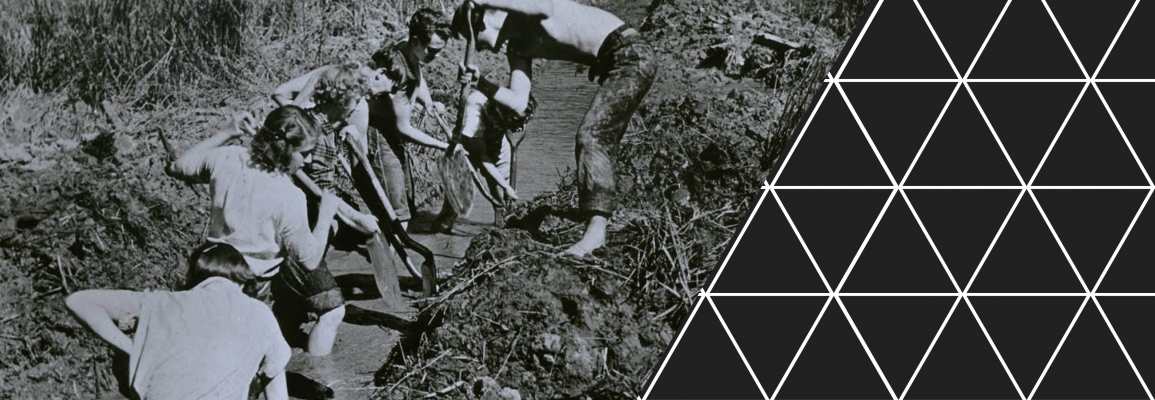Black Mountain College Era 1: Before 1933
In early 1933, John Andrew Rice, an outspoken firebrand professor at Rollins College in Winter Park, Florida was dismissed from his teaching post by Rollins President Hamilton Holt. Rice had been accused of many things, chief among them fomenting revolt among the Rollins faculty. Rice held that traditional lockstep academia, and its often regimented curricula, allowed little in the way of independent thought and engagement. In contrast, Rice aimed to educate students in the pluralistic tradition of John Dewey: the holistic conflation of living and intellect. Rice was adamant that his aim was not to establish an art school. Consequently, he led a band of fellow academic dissidents from Rollins, among them Robert Wunsch and Theodore Dreier, both of whom would prove influential in the life the college, as well as a number of Rollins students loyal to him, and ended up founding Black Mountain College deep in the mountains of North Carolina’s Buncombe County. In his quest to start a new college, Rice had nothing in the way of a plan, much less dollars or even a building.
